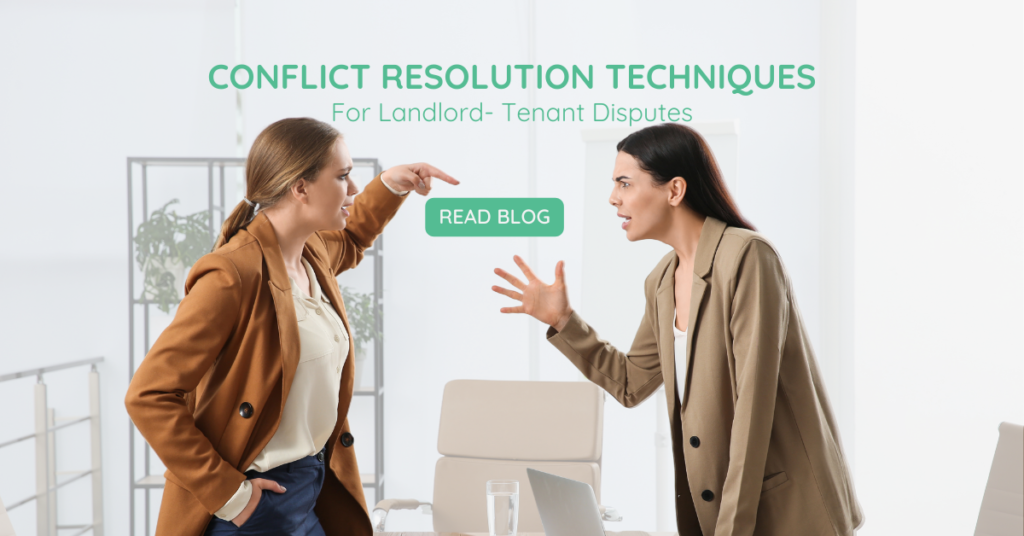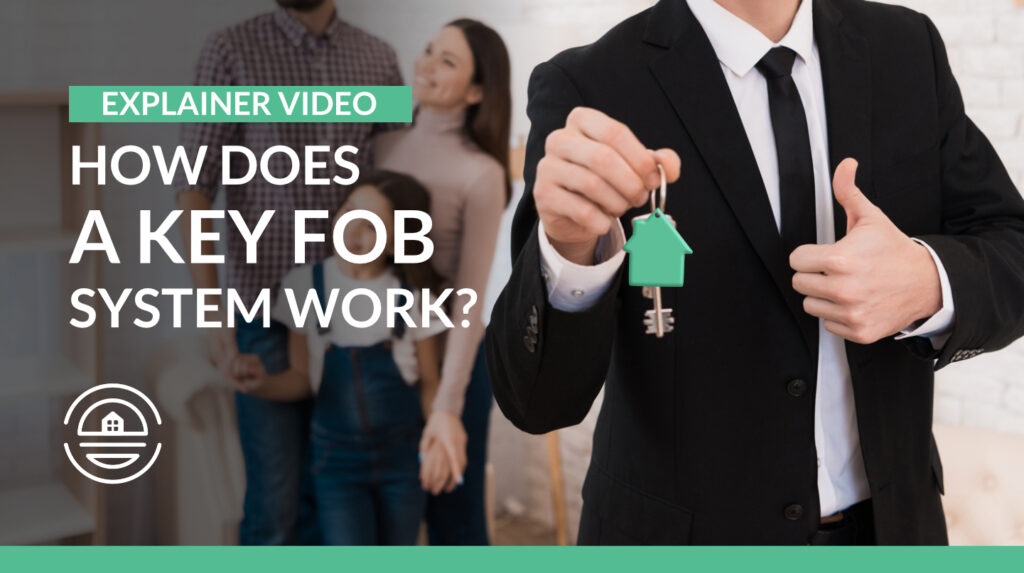Navigating Renting: Conflict Resolution Techniques for Landlords and Tenants
Maintaining a positive and productive relationship between landlords and tenants is essential for a smooth renting experience. However, disagreements can arise from time to time. Learning effective conflict resolution techniques can help both parties address issues constructively and reach fair solutions. This guide will equip you with the tools to navigate landlord-tenant disputes efficiently and…

Maintaining a positive and productive relationship between landlords and tenants is essential for a smooth renting experience. However, disagreements can arise from time to time. Learning effective conflict resolution techniques can help both parties address issues constructively and reach fair solutions. This guide will equip you with the tools to navigate landlord-tenant disputes efficiently and maintain a harmonious living environment.
Table of Contents
Common Causes of Rental Conflict

Several issues can lead to disagreements between landlords and tenants. Understanding these common causes can help you anticipate and address them proactively. Here are some frequent sources of conflict:
- Rent Payment Issues: Late payments or non-payment of rent can be a significant concern for landlords.
- Property Maintenance and Repairs: Disagreements may arise regarding responsibility for repairs, timelines for completion, and the overall quality of maintenance.
- Noise Complaints and Disruptive Behavior: Excessive noise, unruly conduct, or inconsiderate behavior by tenants can disrupt the peace and enjoyment of the property for everyone.
- Unauthorized Occupants or Pets: Having additional occupants or pets beyond what is allowed in the lease can lead to disputes.
- Lease Violations and Security Deposits: Violations of lease terms, such as damage to the property, can result in deductions from security deposits, leading to conflict.
By being aware of these potential trouble spots, you can take steps to prevent them from escalating into major disputes.
Proactive Strategies for a Peaceful Renting Experience
The best way to manage conflict is to avoid it altogether. Here are some proactive strategies to establish a strong foundation for a positive landlord-tenant relationship:
1. Clear and Comprehensive Lease Agreements
A well-written lease agreement that outlines the expectations of both parties is crucial. It should clearly define rent amounts and due dates, maintenance responsibilities, noise limitations, pet policies, and the process for handling security deposits.
2. Regular Property Inspections
Conducting routine inspections allows you to identify potential maintenance issues early on before they become bigger problems. It also provides an opportunity to address any concerns tenants may have about the property.
3. Open Communication and Building Trust
Building a positive relationship with your tenants is key. Respond promptly to their concerns and requests, and maintain open communication channels.
4. Responding Promptly
Addressing issues promptly demonstrates your commitment to maintaining a well-managed property and fosters a sense of respect between landlord and tenant.
Key Techniques for Resolving Disputes When They Arise

Even with the best intentions, disagreements can still occur. When faced with a conflict, here are some key techniques to guide you towards a positive resolution:
Effective Communication
- Active Listening: Pay close attention to the other party’s concerns and acknowledge their perspective.
- Maintain Respect: Use a professional and respectful tone, avoiding accusatory language or personal attacks.
- Clarity and Conciseness: Communicate clearly and concisely, ensuring your message is understood.
- Documentation: Keep a record of all communication, including dates, times, and the content of discussions.
De-escalation Techniques
- Avoid Blame: Focus on finding solutions rather than assigning blame for the problem.
- Emotional Control: Manage your emotions and avoid responding in a way that could further escalate the situation.
- Win-Win Solutions: Explore compromise and work towards solutions that benefit both parties.
Mediation
In some cases, involving a neutral third party as a mediator can be helpful. A mediator can facilitate communication, guide discussions toward solutions, and ensure both parties feel heard.
Knowing Your Rights and Responsibilities
Being familiar with relevant landlord-tenant laws in your area is essential. This knowledge will help you understand your rights and responsibilities, as well as those of your tenants. It’s also important to be aware of the eviction process and legal recourse available in case of unresolved disputes. Consulting with an attorney can be beneficial in complex situations.
Having a clear understanding of your legal standing empowers you to navigate conflicts confidently and protects both your interests and the rights of your tenants.
Conclusion: Building a Positive Renting Relationship
By actively engaging in conflict resolution, you can turn disagreements into opportunities to build a stronger relationship with your tenants. Addressing issues promptly, communicating effectively, and maintaining a professional demeanor can lead to a more positive and productive renting experience for everyone involved.
Green Ocean Property Management: Your Partner in Peaceful Renting
At Green Ocean Property Management, we understand the importance of fostering harmonious relationships between landlords and tenants. We offer a comprehensive suite of property management services designed to streamline communication, address concerns promptly, and ensure a smooth renting experience for all parties involved.
Don’t let conflicts disrupt your rental experience. Let Green Ocean Property Management help you navigate challenges and build a positive and successful landlord-tenant relationship.
How Does a Key Fob System Work?
In today’s article, we’re going to be covering keys. We already discussed about the master key system in a different session. So today, we will discuss key fobs. What is a Key Fob? Key fobs are the little things that can get you into a building. Instead of using actual keys,…
How Nonresident Aliens Pay Their Taxes
According to Internal Revenue System, Nonresident aliens are individuals who are not a U.S. citizen or U.S. national and wasn’t able to pass the green card test or the substantial presence test. Nonresident aliens are international students who are currently studying in the United States, international students who need to obtain practical training that is…
Preventative Maintenance Checklist for Rental Units
As a landlord, ensuring your rental unit is well-maintained is crucial. Not only does it benefit your tenants by providing them with a safe and comfortable living environment, but it also saves you money in the long run. By implementing a preventative maintenance plan, you can catch minor issues before they escalate into costly repairs,…








